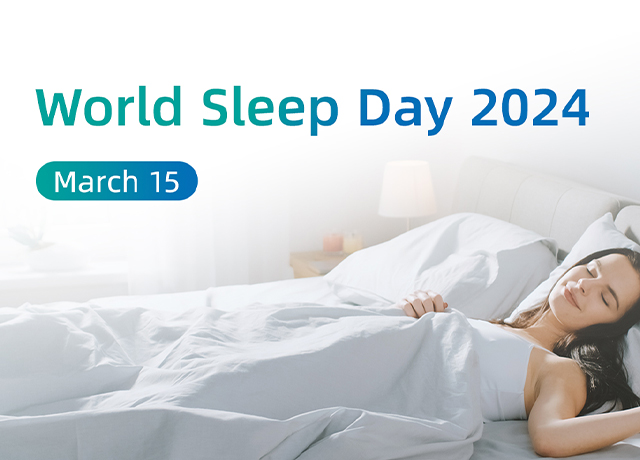
World Sleep Day is on March 15th, 2024. The theme is Sleep Equity for Global Health, which aims to promote sleep health on World Sleep Day and focuses on sleep health together. As we celebrate World Sleep Day, it's essential to recognize that sleep is not a one-size-fits-all phenomenon. Just as our personalities, preferences, and lifestyles vary, so do our sleep requirements. Why do different individuals require varying amounts of rest?
Factors That Affect Sleep Duration
Age is a factor in our whole life concerns our whole sleep time.
Our sleep needs evolve throughout our lives. Here's a breakdown by age group
- Infants (4-12 months): They require 12-16 hours of sleep, including naps.
- Toddlers (1-2 years): Aim for 11-14 hours, including naps.
- Preschoolers (3-5 years): Need around 10-13 hours, including naps.
- School-age children (6-12 years): Benefit from 9-12 hours of sleep.
- Teenagers (13-18 years): Ideally, they should get 8-10 hours of rest.
- Adults (18 years and older): Magic number is 7 hours or more3 4.
In addition to age, factors such as genetics, lifestyle and overall health can affect our sleep needs.
If you find yourself not being productive, healthy and happy on seven hours of sleep, then you may need more. By considering your work style, exercise habits, health issues, and how much sleep you typically need, you can create a sleep plan of your own within the realm of what's possible.3
Embracing Our Differences
Let's celebrate the diversity of sleep patterns across the globe. Different countries and different work-life styles have shaped our different sleep habits. As we advocate for better sleep health, let's also honor our unique needs.
Take Action and Take care yourself
Remember, quality sleep is not a luxury, it is a necessity. Let's respect each other's differences and support each other to achieve restful nights.
Resource:
(1) World Sleep Day. https://worldsleepsociety.org/world-sleep-day/.
(2) World Sleep Day: Sleep Habits from Around the World | Sleep Reset. https://www.thesleepreset.com/blog/world-sleep-day.
(3) Scientists have worked out how many hours’ sleep we need. | World .... https://www.weforum.org/agenda/2022/05/ideal-hours-sleep-study/.
(4) Best Time to Sleep for Different Age Groups: Benefits and Side Effects. https://www.healthline.com/health/best-time-to-sleep.
(8) How Much Sleep Different Age Groups Need - The Art of Healing. https://theartofhealing.com.au/2020/10/how-much-sleep-different-age-groups-need/.
(9) Recommended Hours of Sleep by Age Chart | Sleep.com. https://www.sleep.com/sleep-health/how-many-hours-of-sleep.
